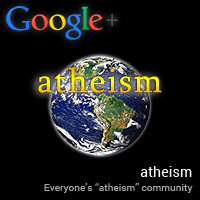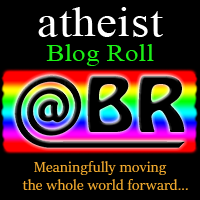Although the atheism classification is, as a matter of fact and by definition, not a philosophy, there have been various interesting points of view from famous philosophers and thinkers throughout history who are worthy of consideration because their thoughts add clarity to our understanding of what atheism is philosophically and fundamentally.
The motive of many theologians to insist on using incorrect definitions of the words "atheism" and "atheist" is actually a manipulative tactic that involves the invention of claims that most atheists do not make, and are typically used with the intention of creating and unfairly shifting a consequently-imagined burden of proof onto atheists. The philosophical ideas showcased hereunder will hopefully prove helpful to atheists responding to and countering those attempts at manipulation.
Christopher Hitchens (1949-2011 CE)
- In a debate in 2009 entitled "Does god exist?" (0:58:48-1:00:34; https://www.youtube.com/watch?v=wMSylcscjrw&t=3528) with Dr. William Lane Craig, the following explanatory clarification was provided by Christopher Hitchens (and transcribed by Randolf Richardson on February 1, 2020):
- There is a terminological problem here, which may conceal more than just terminological difficulty. The proposition that "atheism is true" is a misstatement of what I have to prove and what we believe. There's an argument among some of us as to whether we need the word at all, in other words, I don't have a special name for my unbelief in tooth fairies, say, or witches, or in Santa Claus, I just don't think that they're there; I don't have to prove a-tooth-fairyism, I don't have to prove a-santa-clausism, I don't have to prove a-witchism...
It's just I have to say that I think those who do believe these things have never been able to make a plausible or intelligible case for doing so. That's not agnosticism, because it seems to be that if you don't think there is any evidence, you're wrong to take refuge in saying you're neutral; you ought to have the courage to answer the question which one is regularly asked "are you an atheist or not?"
"Yes," I will say, "I am." You can't tell anything else about me. You can't tell anything else about what I think, about what I believe, about what my politics are, or my other convictions, it's just that I don't believe in the existence of a supernatural dimension, and I've never been shown any evidence that any process observable to us cannot be explained by more satisfactory and more convincing means.
The great [Pierre-Simon,] marquis de Laplace [(1749-1827 CE)], when showing his working model of the solar system to the Emperor Napoleon, was asked, "well, your model seems to have no room for a god in it, for a deity," and he said, "well, your majesty, it still all operates without that assumption."
Antony Flew (1923-2010 CE)
- The Presumption of Philosophy by Antony Flew (University of Calgary), published in the Canadian Journal of Philosophy, Volume II, Number 1, Introduction, September 1972.
- ... Plato in this notorious treatment of heresy might be said to be rebuking the presumption of atheism. The word "presumption" would then be employed as a synonym for "presumptuousness." But, interesting though the questions here raised by Plato are, the word has in my title a different interpretation. The presumption of atheism which I want to discuss is not a form of presumptuousness; indeed it might be regarded as an expression of the very opposite, a modest teachability. My presumption of atheism is closely analogous to the presumption of innocence in the English Law; a comparison which we shall later find it illuminating to develop. What I want to examine in this paper is the contention that the debate about the existence of God should properly begin from a presumption of atheism, that the onus of proof must lie on the theist.
The word "atheism," however, has in this contention to be construed unusually. Whereas nowadays the usual meaning of "atheist" in English is "someone who asserts that there is no such being as God," I want the word to be understood here much less positively. I want the originally Greek prefix "a" to be read in the same way in "atheist" as it customarily is read in such other Greco-English words as "amoral," "atypical," and "asymmetrical." In this interpretation an atheist becomes: not someone who positively asserts the non-existence of God; but someone who is simply not a theist. Let us, for future ready reference, introduce the labels "positive atheism" for the former doctrine and "negative atheism" for the latter.
The introduction of this new sense of the word "atheism" may appear to be a piece of perverse Humpty-Dumptyism, going arbitrarily against established common usage. "Whyever," it could be asked, "don't you make it not the presumption of atheism but the presumption of agnosticism?" But this pardonably petulant reaction fails to appreciate just how completely noncommittal I intend my negative atheist to be. For in this context the agnostic - and it was, of course, in this context that Thomas Henry Huxley first introduced the term - is by the same criterion of established common usage someone who, having entertained the existence of God as at least a theoretical possibility, now claims not to know either that there is or that there is not such a being. To be in this ordinary sense an agnostic you have already to have conceded that there is, and that you have, a legitimate concept of God; such that, whether or not this concept does in fact have application, it theoretically could. But the atheist in my peculiar interpretation, unlike the atheist in the usual sense, has not as yet and as such conceded even this.
Further reading
![[D.A. logo]](/images/logo-da-small.png)
![[Chinese word for: atheism -- Wu Shen Lun)]](/images/chinese-word-for-atheism.png)



